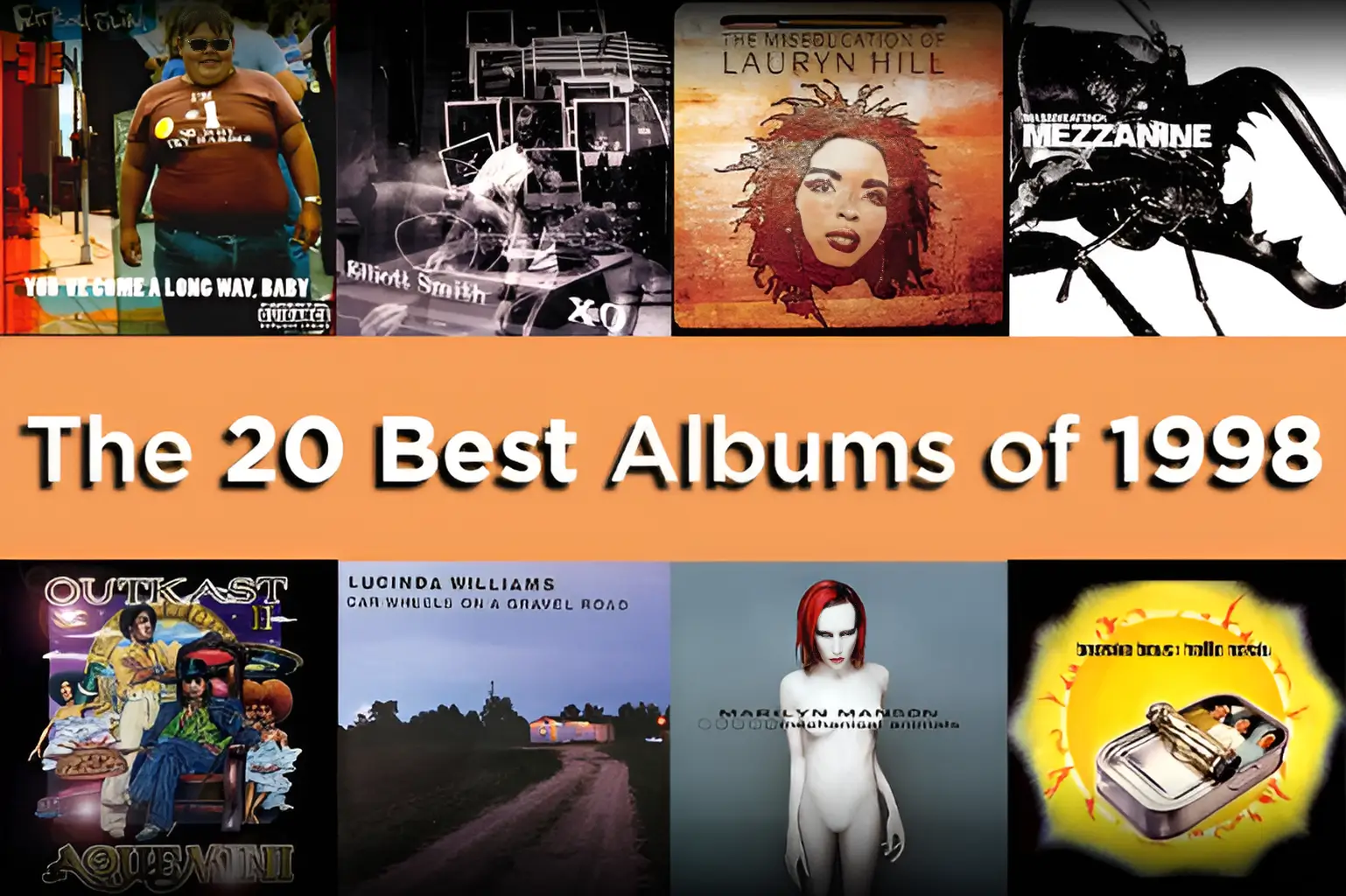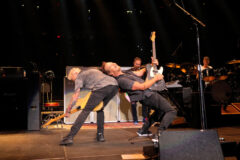The 20 best albums of 1998, ranked by the SPIN editors. [This list was originally published in the January 1999 issue of SPIN.]
1. Local H, Pack Up the Cats (Island)
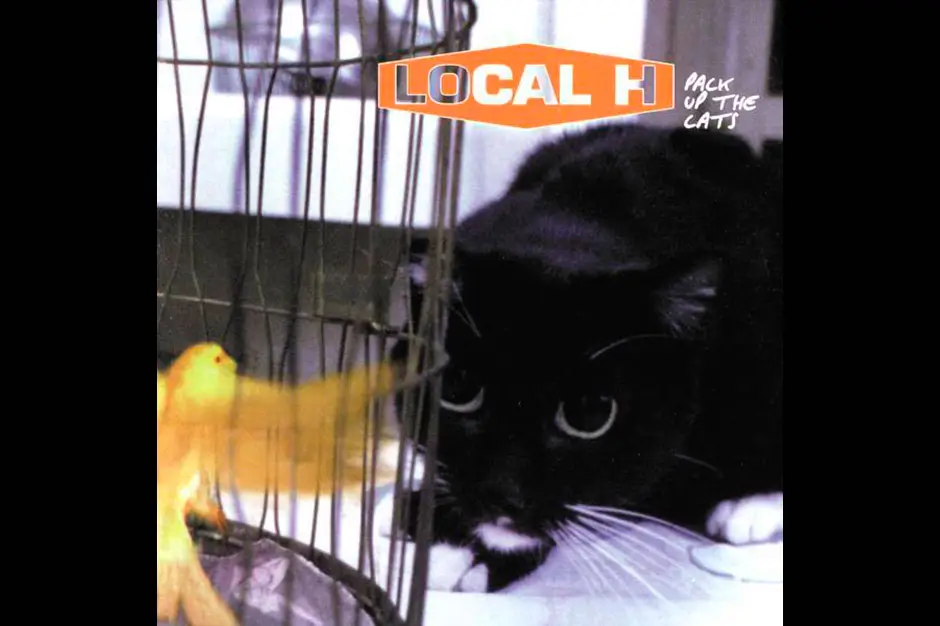
Stuck in a music world full of inside jokes they just don’t get, slicked up by Queen’s old producer, biracial small-town-Illinois Nirvanabee power-duo kick ass and take names like a much bigger band, keeping it copacetic by referencing the Who and Beck and “Subterranean Homesick Blues” and Dr. Pangloss from Candide. Everything’s fine and good, except maybe last night’s show, and you won’t wear our T-shirts anymore and eventually we’ll all outgrow rock’n’roll anyway. But not yet.
Chuck Eddy
2. Unkle, Psyence Fiction (Mo’ Wax/London)
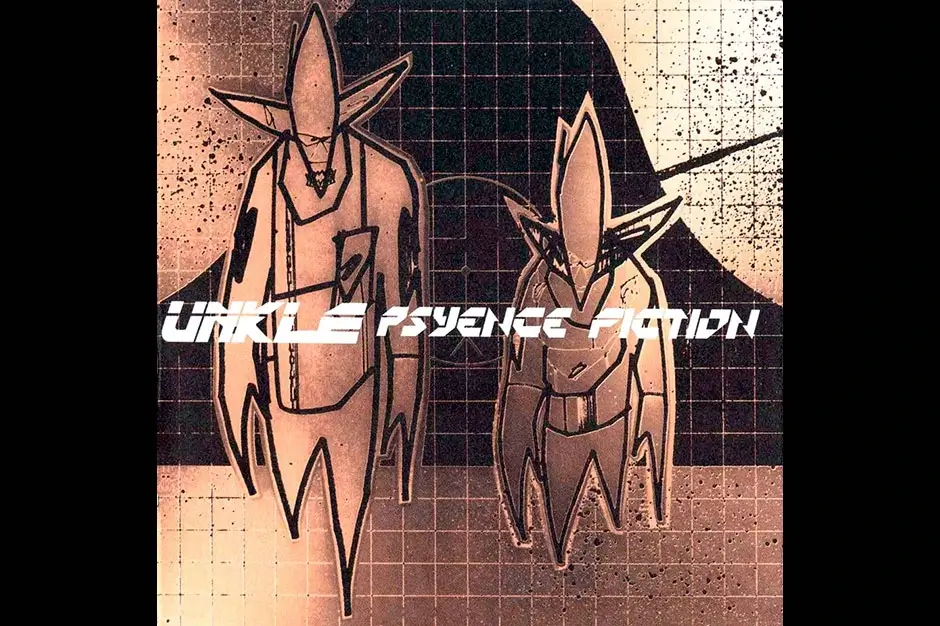
Assisted by assorted Radiohead/Verve/Beastie/Metallica buddies, a pair of guys who make their living off other people’s records (DJ Shadow and James Lavelle) invent more fun new kinds of pretension than you ever thought possible, somehow managing to imbue their futuristically cinematic-concept-album-about-wearing-headphones with a sense of humor. The loudest parts update the electric slide; the loveliest come from the classical-music aisle; and some of the phattest come from Scott Joplin.
C. E.
3. Fatboy Slim, You’ve Come a Long Way, Baby (Skint/Astralwerks)
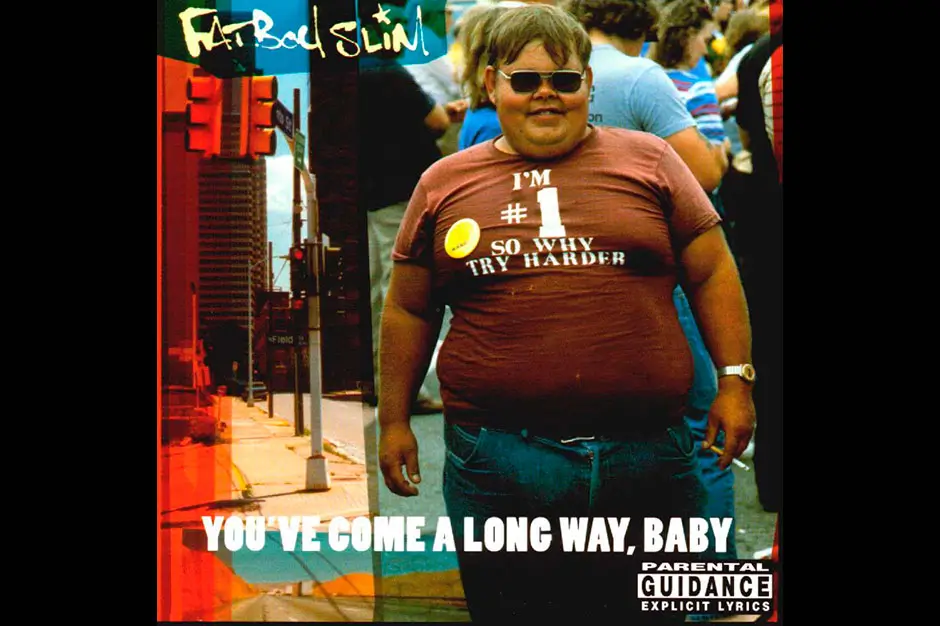
Maybe everyone and their funk soul brother has ravaged all the thrift stores from here to Timbuktu in search of grist for their irony mill, but no one has done it with more obvious glee and less apparent irony than Fatboy Slim. With nary a subtlety in earshot, You’ve Come a Long Way, Baby pilfers sounds from just about everybody worth robbing, generating the kind of visceral thrills normally reserved for a wrestling match. As the man himself says, “If this don’t make your booty move, you’re dead.”
Peter Shapiro
4. Rufus Wainwright, Rufus Wainwright (DreamWorks)
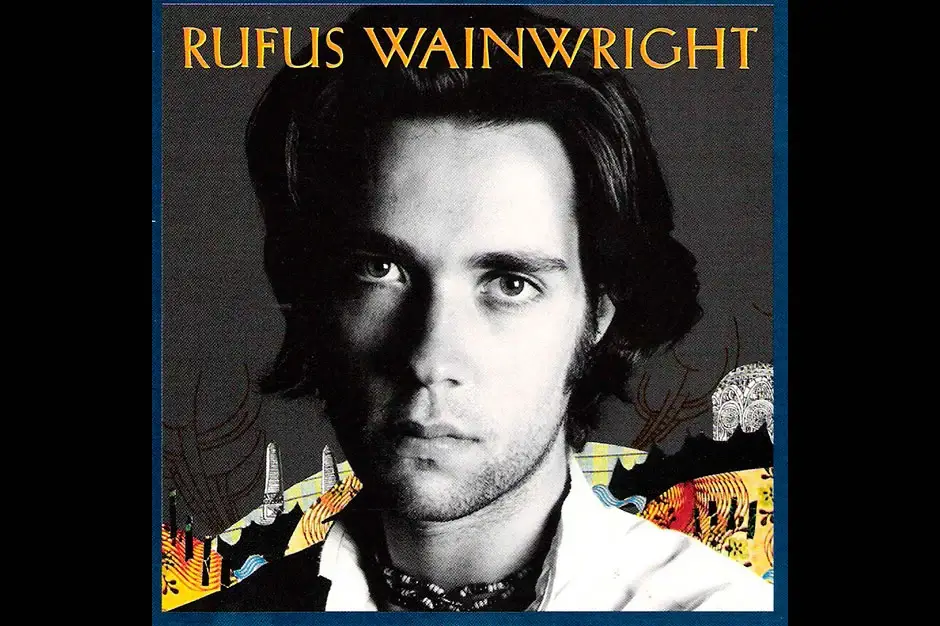
A drama queen singing of love’s pain? With a piano? And it’s not disco? I think I have to go to the dentist — for a month. But, hey, it’s nice to get sucker-punched sometimes, and Wainwright’s debut is so confident, music, and swoony-moony beautiful I didn’t find the bruise for a week. Some credit Beach Boy vet Van Dyke Park’s merry-go-round string arrangements, some credit genes (huh?), but I think this one has legs because Wainwright is a singer/songwriter, in that order — a rarer animal than you think.
Sasha Frere-Jones
5. Gang Starr, Moment of Truth (Noo Trybe/Virgin)
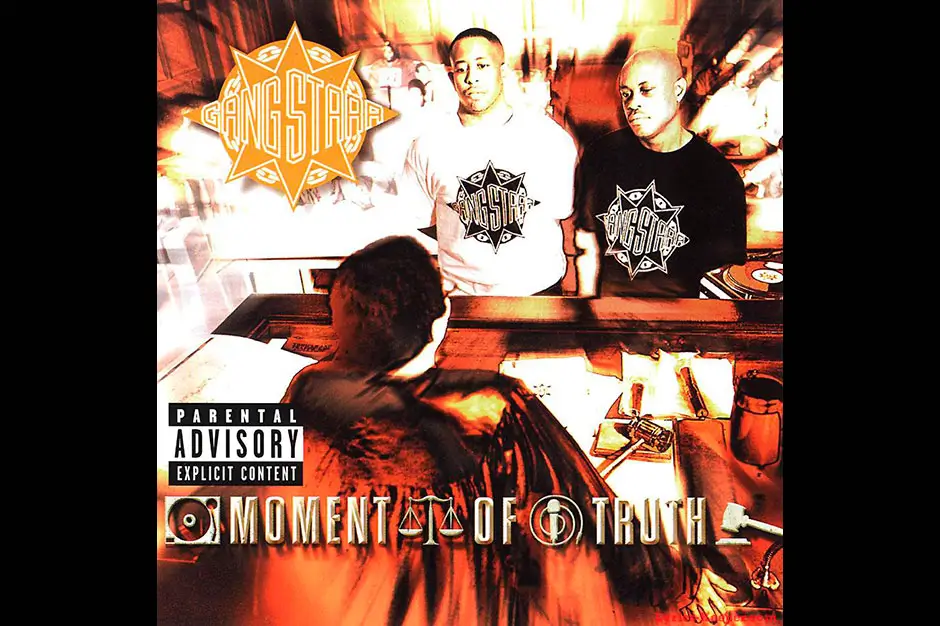
Late-’80s hip-hop nostalgia has produced a glut of creaky comebacks — Jungle Brothers, Big Daddy Kane, EPMD, etc. — but Gang Starr wash all that away with this career-defining, adult-themed manifesto. Guru’s warm monotone and slump-shouldered humility bounce to life beside Premier’s jaunty, firm-handshake funk. As my friend the twentysomething female indie-rock exec says, “It’s all about the main themes of my life — fame, money, respect, no respect, backstabbin’, and women giving you back rubs.”
Charles Aaron
6. R.E.M., Up (Warner Bros.)
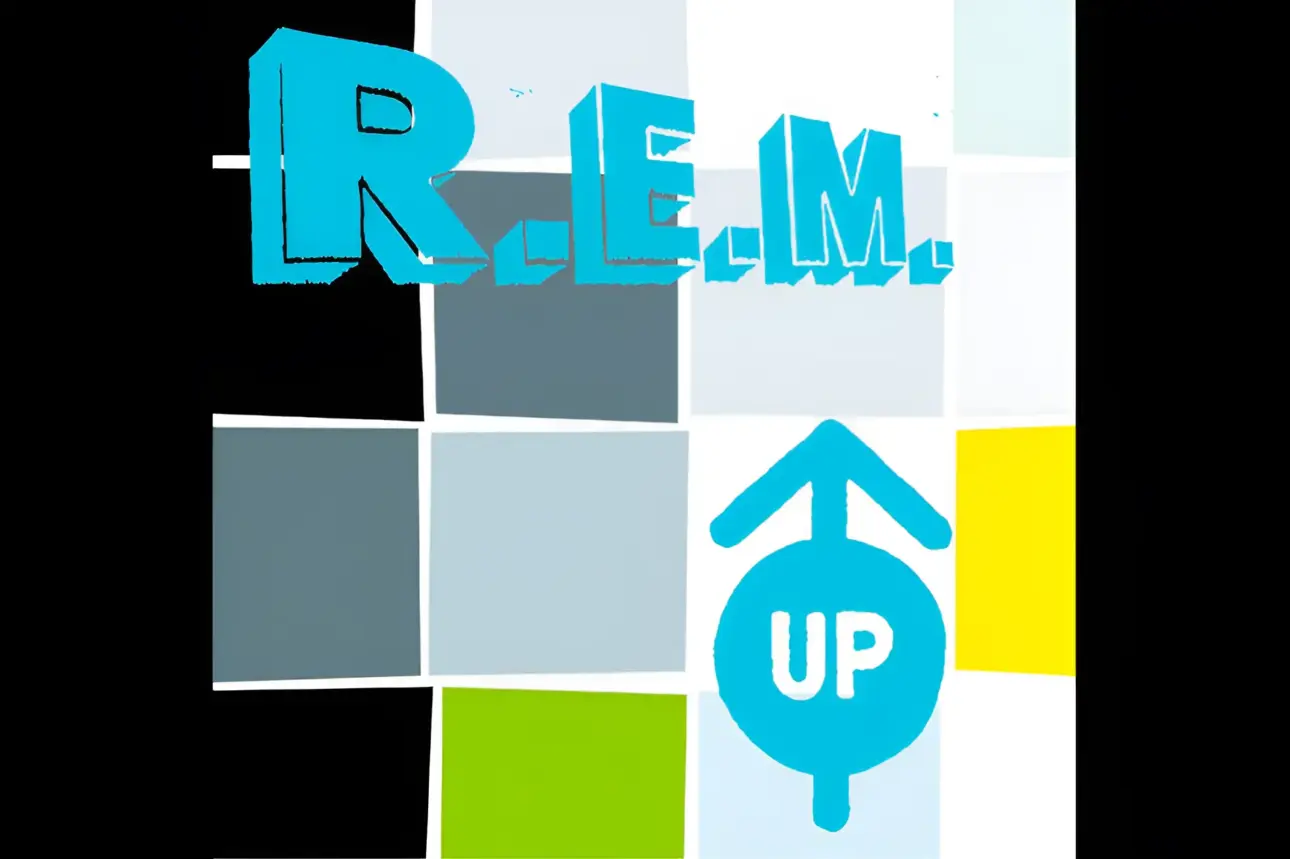
Jolted by Bill Berry’s departure, R.E.M. unmoored itself from rock and reconfigured itself as a three-piece chamber pop-band, drawing on its multi-instrumental grace and knack for lateral thinking. Up keeps folding in on itself and out of itself, exposing hints of sonic textures for instants before they recede again, turning is melodies around slowly to examine them from all sides. And Michael Stipe, his voice suddenly bared to the elements, pushes himself to a driven, surprising performance.
Douglas Wolk
7. Plastikman, Consumed (Minus/NovaMute)
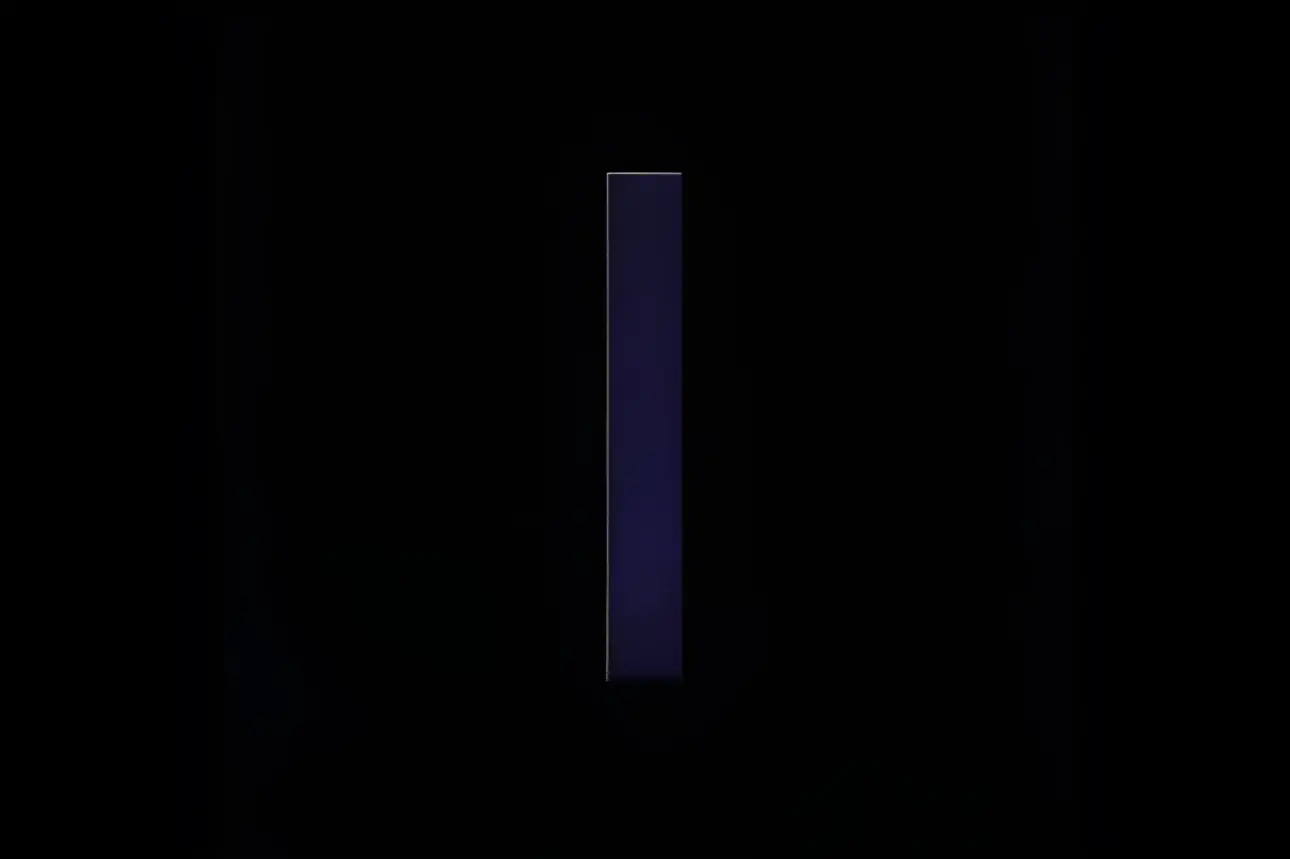
Richie Hawtin is the Detroit area’s most minimal techno artist, and the best of his four 1998 albums is his most sparse release yet, pursuing a dub perspective dominated by a throbbing, occasionally percolating pulse; think “deep burble.” Musically similar to the discreetly oscillating approach of Berlin’s Basic Channel/Chain Reaction collective, this isn’t a dance floor record. It’s less house than “home” music, with leisurely grooves and a restrained BPM velocity that thumps with the steady, insistent deliberation of a Jarvik-7 heart.
Mike Rubin
8. Tori Amos, From the Choirgirl Hotel (Atlantic)
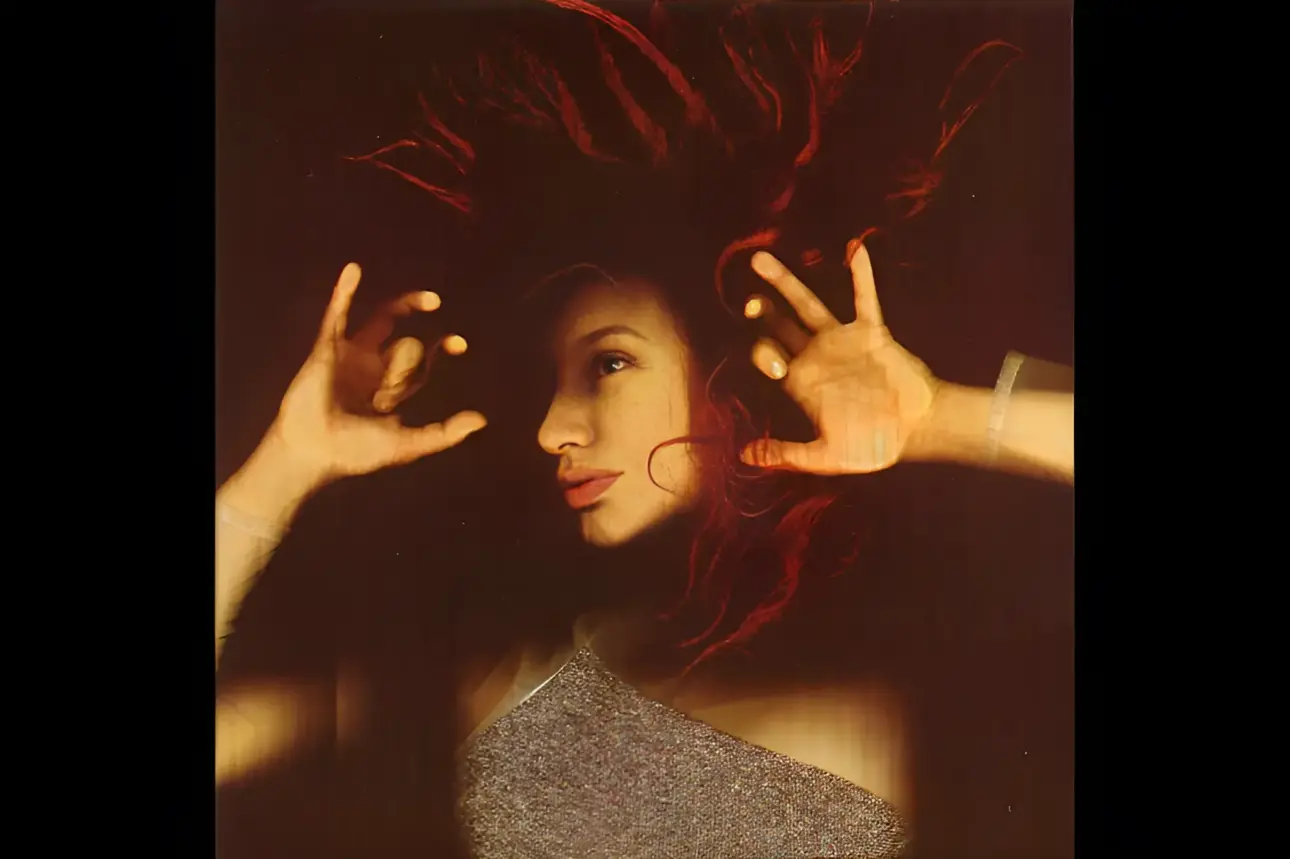
Sarah McLachlan checked herself outta this particular residency ages ago, but here Tori pulls the shades, orders up crazy room service, and lays in for the long haul. The result is claustrophobic art-rock where the encroaching walls blossom into wide-screen Technicolor psychodramas. With a vocal mix that often sounds like you’re swinging from the epiglottis, she shucks the feminine in all its forms (male included), making it both quiver and deliver. Her very own Hounds of Love, without the dogs.
Will Hermes
9. Quasi, Featuring “Birds” (Up)
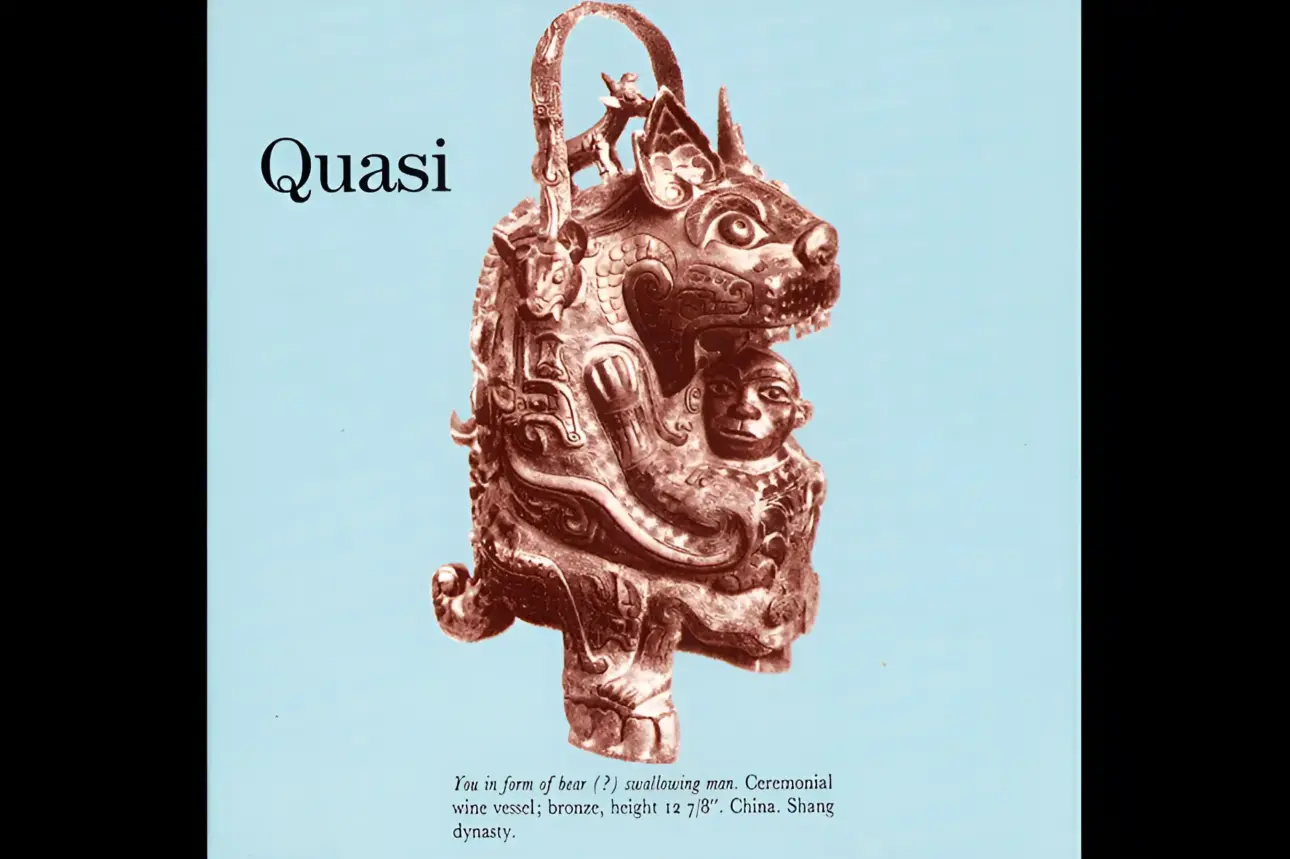
Keyboardist Sam Coomes and Sleater-Kinney drummer Janet Weiss, the most fetching ex-couple since the Eurythmics, are unfailingly tuneful and lacerating on the subject of their own marriage’s collapse. Coomes’ electric harpsichord has a sham-dignified sound twisted and distorted to its fraying point, and Weiss’ splashing beats and sour-sweet harmonies tense it up even more. These are the songs of smart people trying to find some way out of corrosive despair — indie rock’s Rumours.
D. W.
10. Hole, Celebrity Skin (DGC)
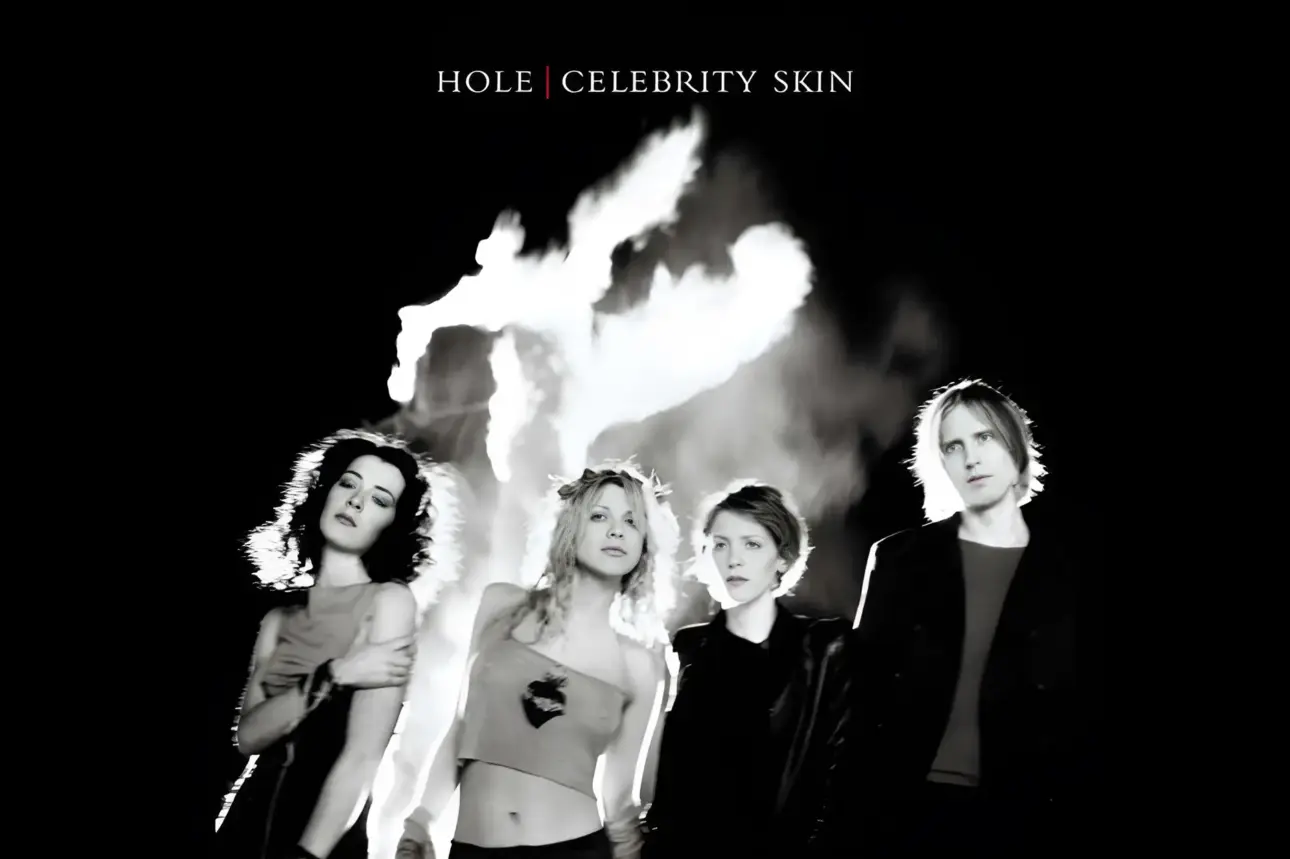
Sellout album of the year: Noted Hollywood widow with the decade’s most powerful set of pipes forgoes dank smells of teen spirit for warm smells of colitas, expounding on makeup and makeovers and girls sold down the river and all the pretty radio boys who she calls friends. She melds “Swing Low Sweet Chariot” with Neil Diamond’s “Cherry Cherry,” and beauty with a beat her band had trouble locating last time out. Then she drives off to Malibu.
C. E.
11. Beastie Boys, Hello Nasty (Grand Royal/Capitol)
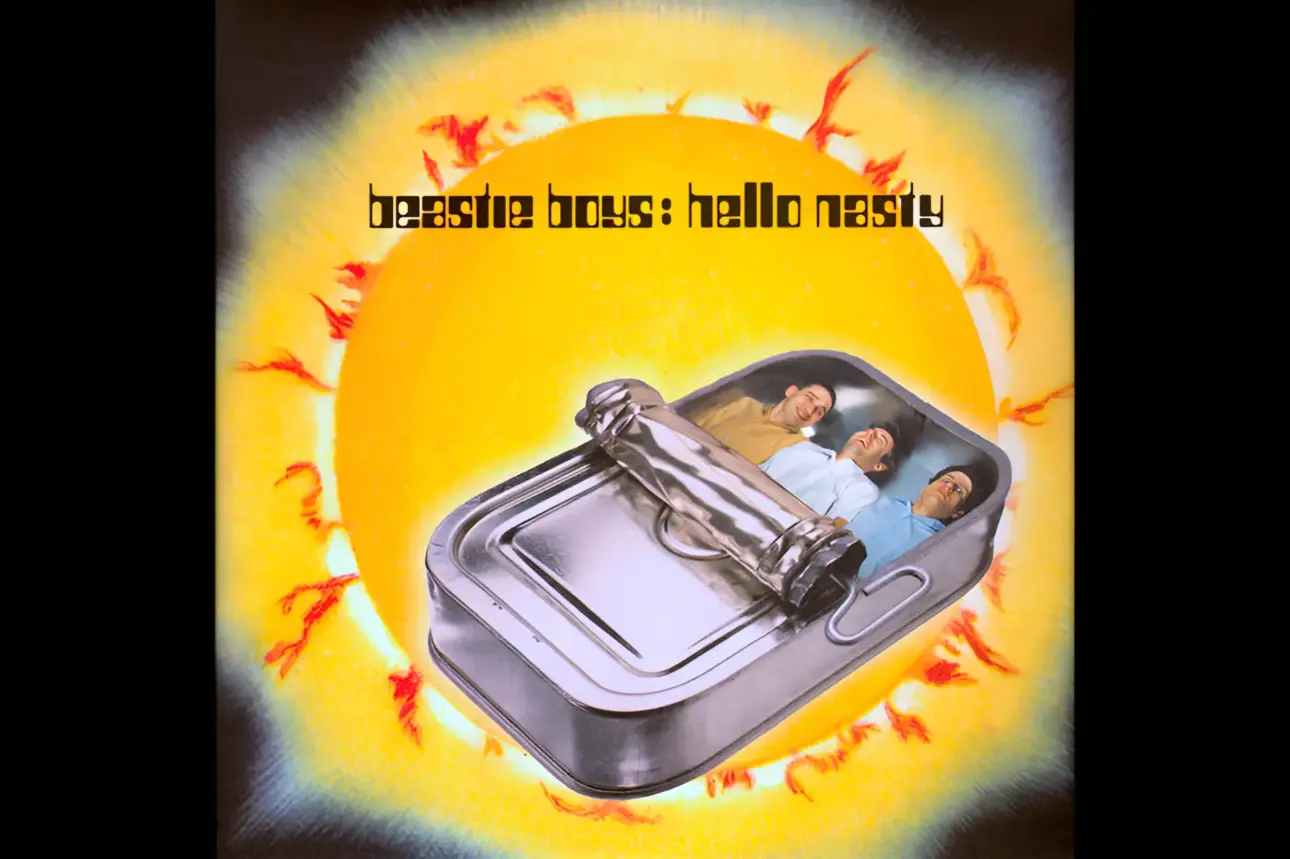
While other aging alt-chieftains bummed us out worrying which train to ride into “the year 2000,” the Kings of Boggle had a sublimely stoopid blast with all the possibilities, imagining a funked-up fruitopia in which B-boys, soundgirls, and serial revivalists find common ground in krush-groovin’ and Krispy Kreme highs. A grab-bag of cool culture filtered through the inimitable Beastie sensibility, the most schizophrenic record of ’98 was also the most user-friendly, down to every last Vocoder growl and Toulouse-Lautrec shoutout.
S. M.
12. Garbage, Version 2.0 (Almo Sounds)
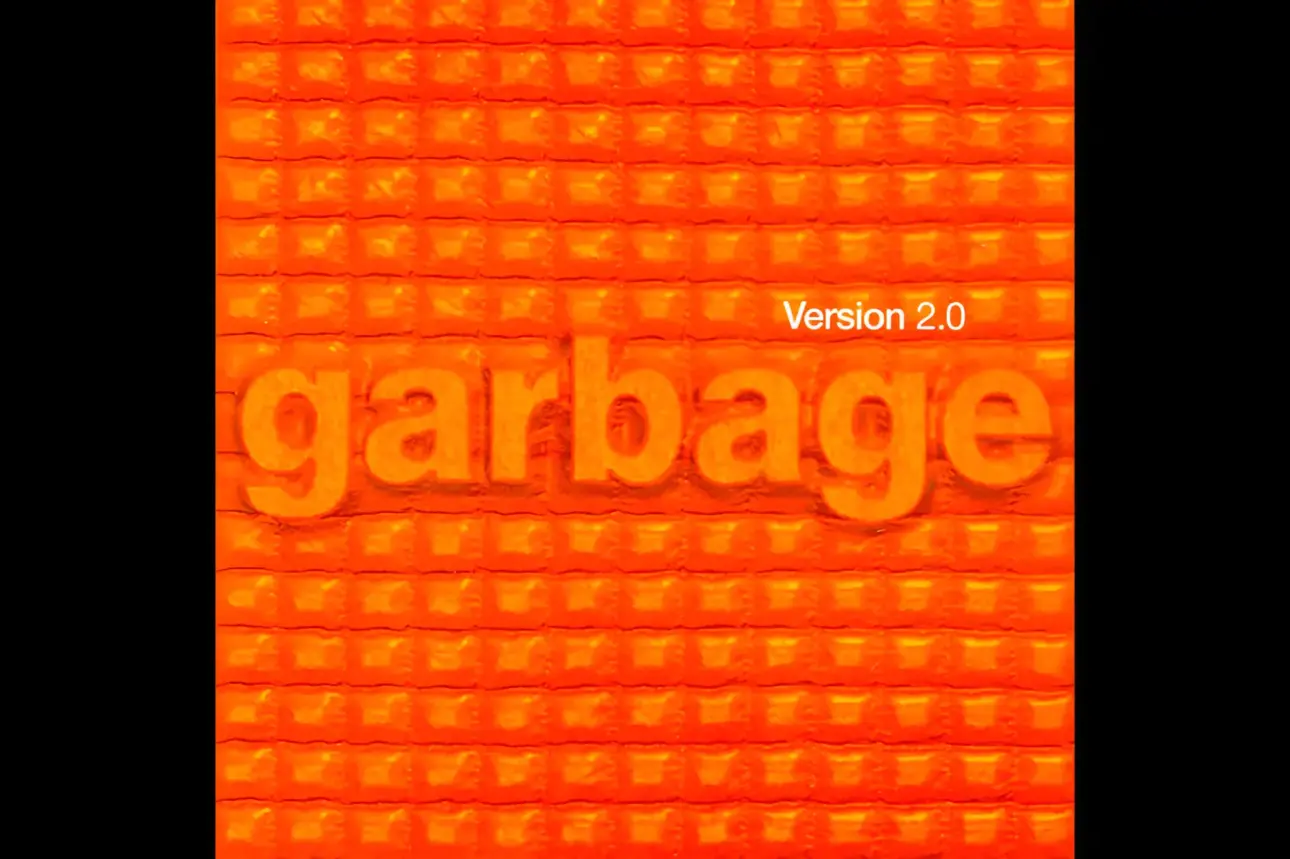
In this album’s first song, Shirley Manson calls herself wolf, vampire, demon. Is she boasting or warning you off? Before you decide, ponder this: Manson’s as comfortable fantasizing a better future as she is garnishing a Chrissie Hynde-style kiss-off with a note-perfect Hynde imitation. By turns smart and tuff, compassionate and cynical, Version 2.0‘s churning, layered cyberpop is a survival manual for the 21st century and the perfect synthesis for today’s brainy woman.
Jesse Berrett
13. Billy Bragg & Wilco, Mermaid Avenue (Elektra)
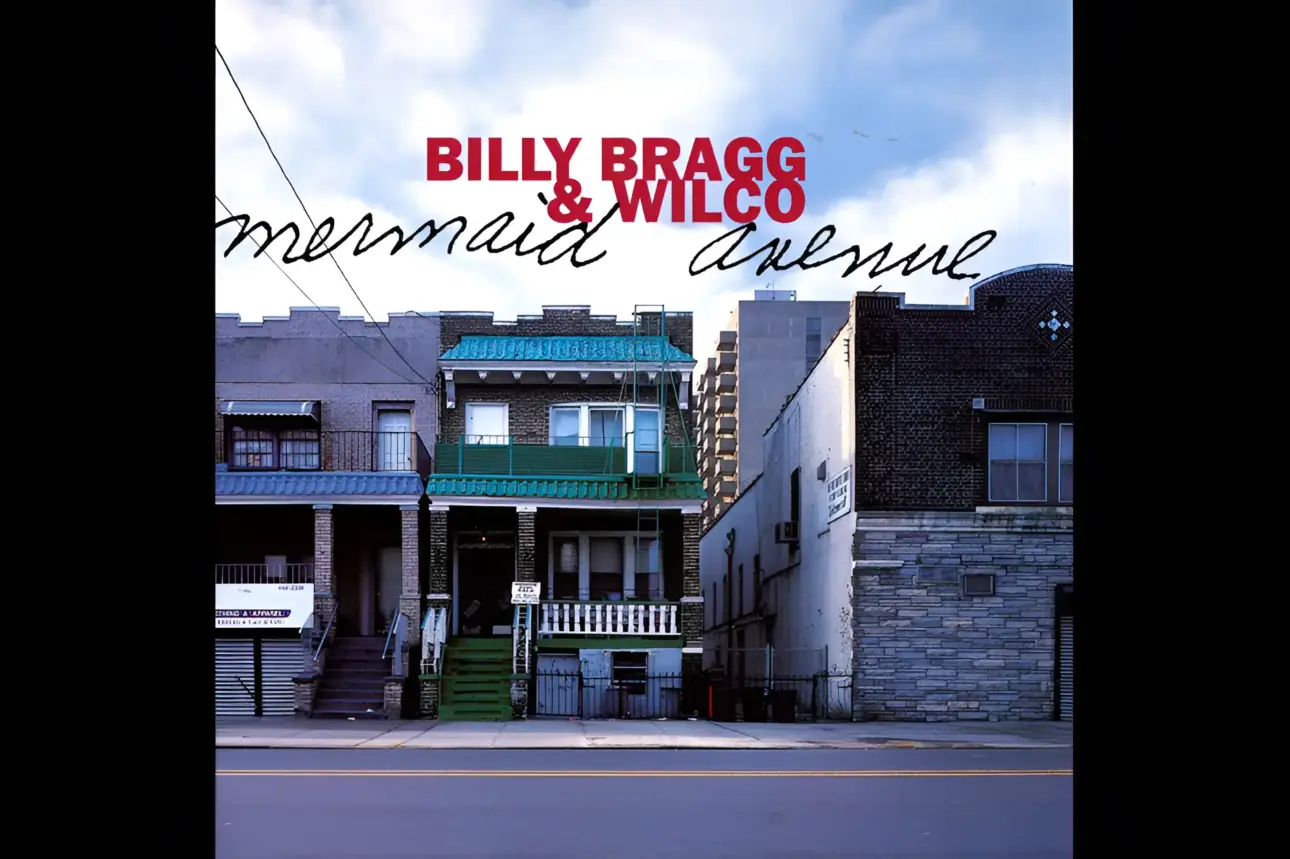
What could’ve been an embalming is instead a boozy séance, conjuring Woody Guthrie’s ghost with some lost song lyrics and a clan who employ the mythic folkie as mirror. The apparition rocks, sighs, casts a vote for Jesus, propositions Ingrid Bergman, and generally makes everyone look good, even Natalie Merchant. Like the London audience on Dylan’s Live 1966, this is proof we sometimes still need Brits to bring out the American in us.
W. H.
14. Marilyn Manson, Mechanical Animals (Nothing)
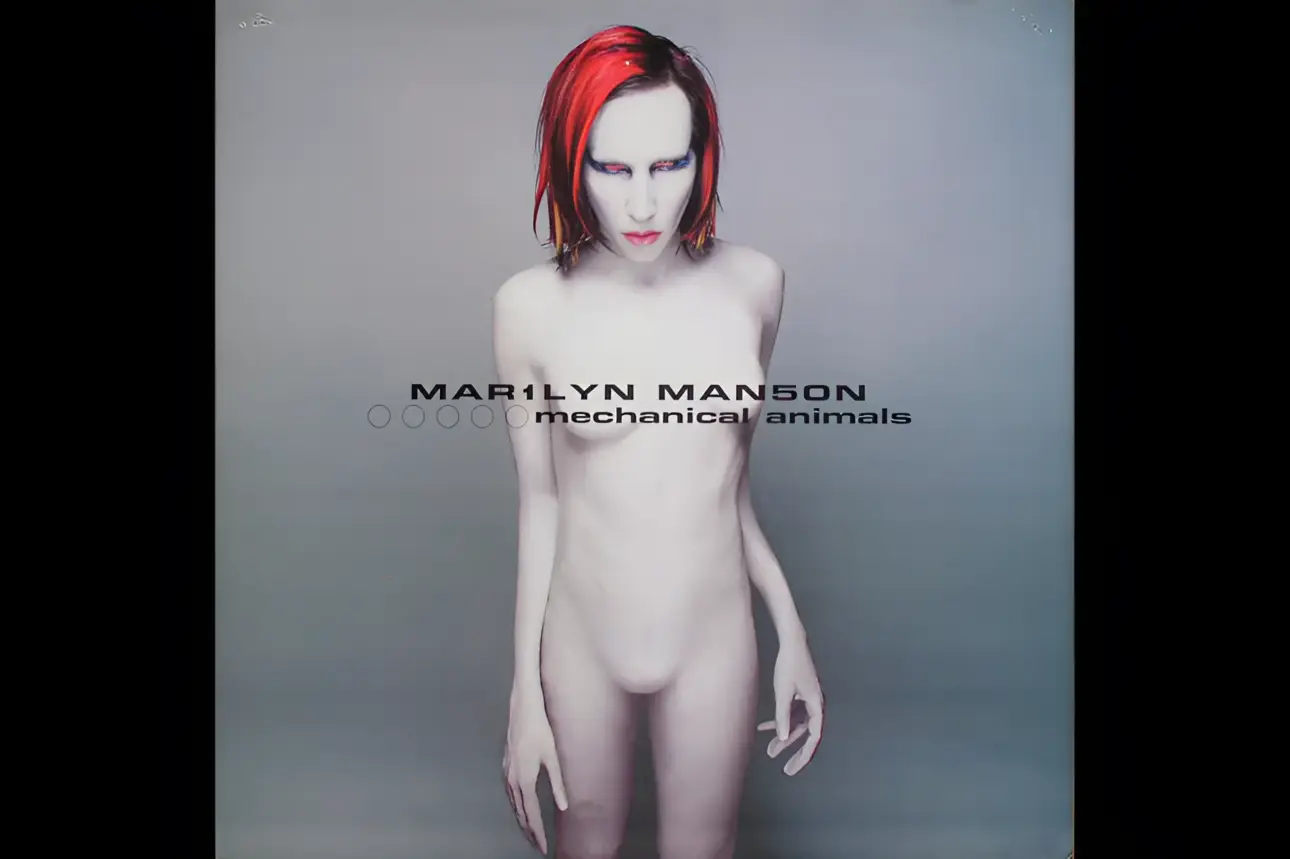
Leaving behind a legacy of unlistenable, Reznor-spawned performance art, Marilyn Manson has somehow transformed himself into the only modern-rock superstar worth worshipping or reviling. Mechanical Animals is a gloriously preening, hummably noisy glam smack upside the head to uptight hipsters and jaded normals alike. A benevolent monster, Manson growls actual songs about our alienated society’s lack of cultural tolerance (particularly for self-hating celebrities with prosthetic boobs and bad dye jobs).
C. A.
15. Massive Attack, Mezzanine (Virgin)
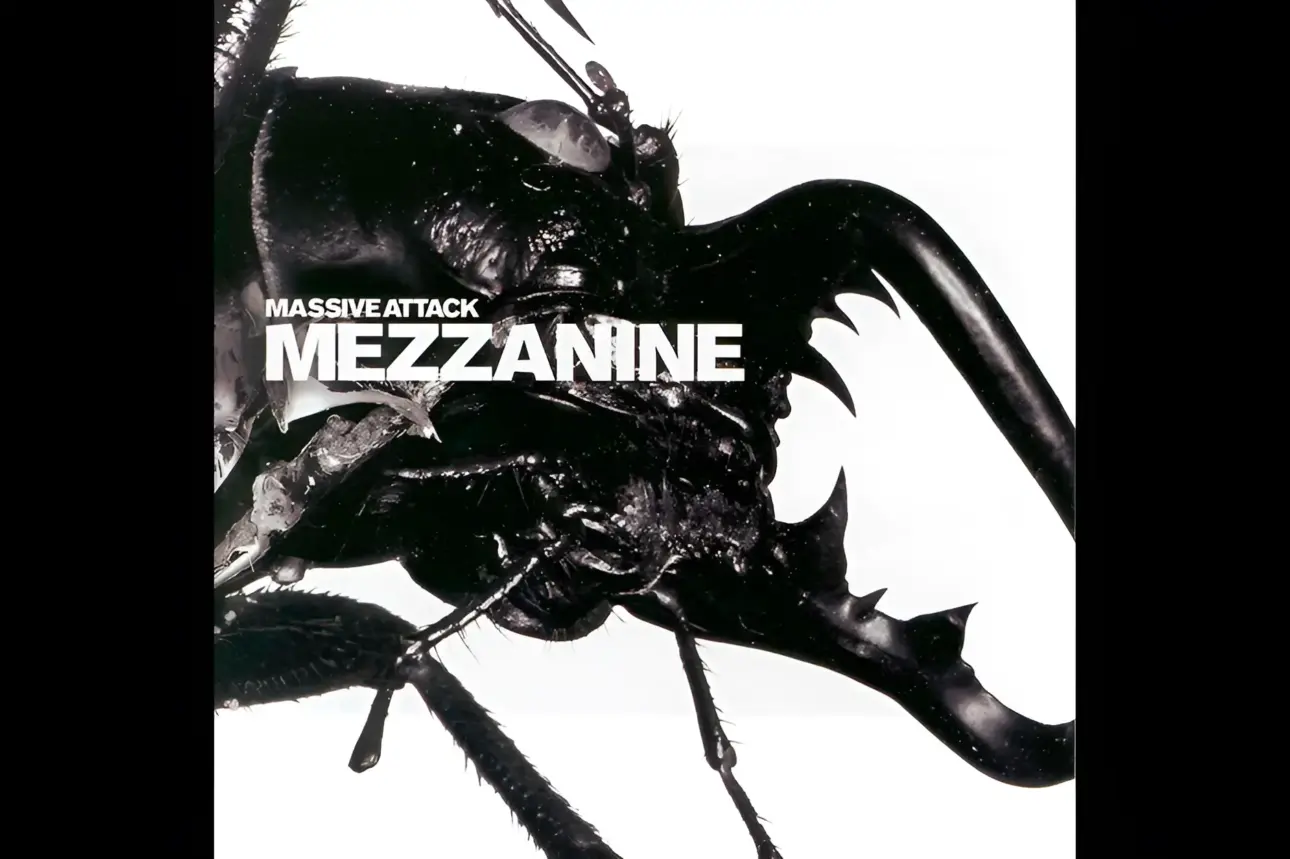
Originators of melancholy prog-rock-hip-hop mutations, Massive Attack bring the moody noise and molasses-tempo beats you’d expect into even darker, psychedelic, gently psychotic realms. Cocteau Twin Liz Fraser and pals provide otherworldly vocal drama while folk, grindcore, and a deeper dub than ever enter Massive’s haunted whirlpool of sensual sonic fetishism. You can bet that little Goth babies all over the world are being conceived to this masterful murk.
Barry Walters
16. Air, Moon Safari (Source/Caroline)
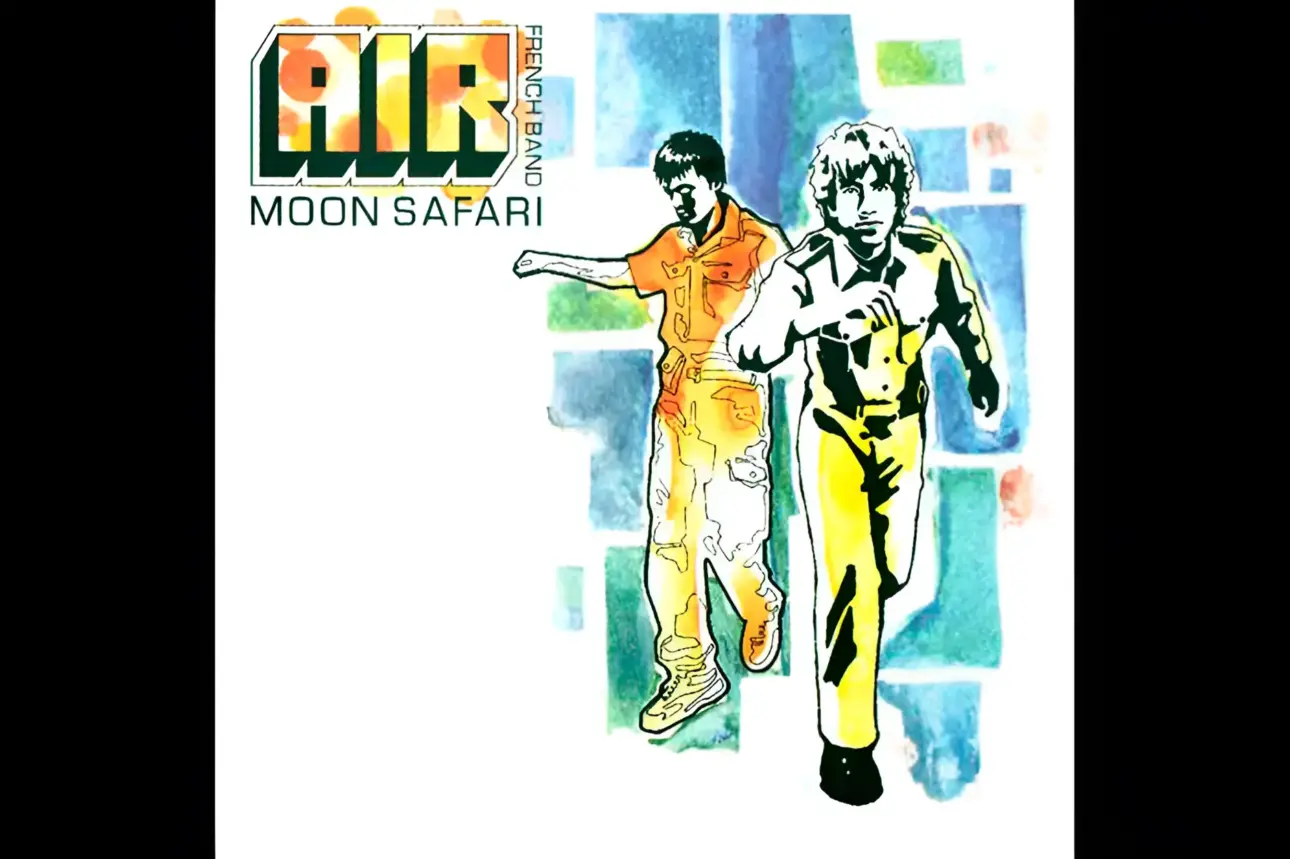
The soundtrack to a date with a “Sexy Boy” who whisks you off to a fancy restaurant, stares longingly into your eyes, then chatters on endlessly about that rare Astral Sounds From the Year 2000 record he found at a thrift store for only two dollars!, this French duo’s celestial full-length debut glided form the speakers at hipster cafés and fancy shoe stores alike. Catchy, expertly crafted electro-pop as shiny as a silver spacesuit, and as cheeky as a flying video monkey.
S. M.
17. Lucinda Williams, Car Wheels on a Gravel Road (Mercury)
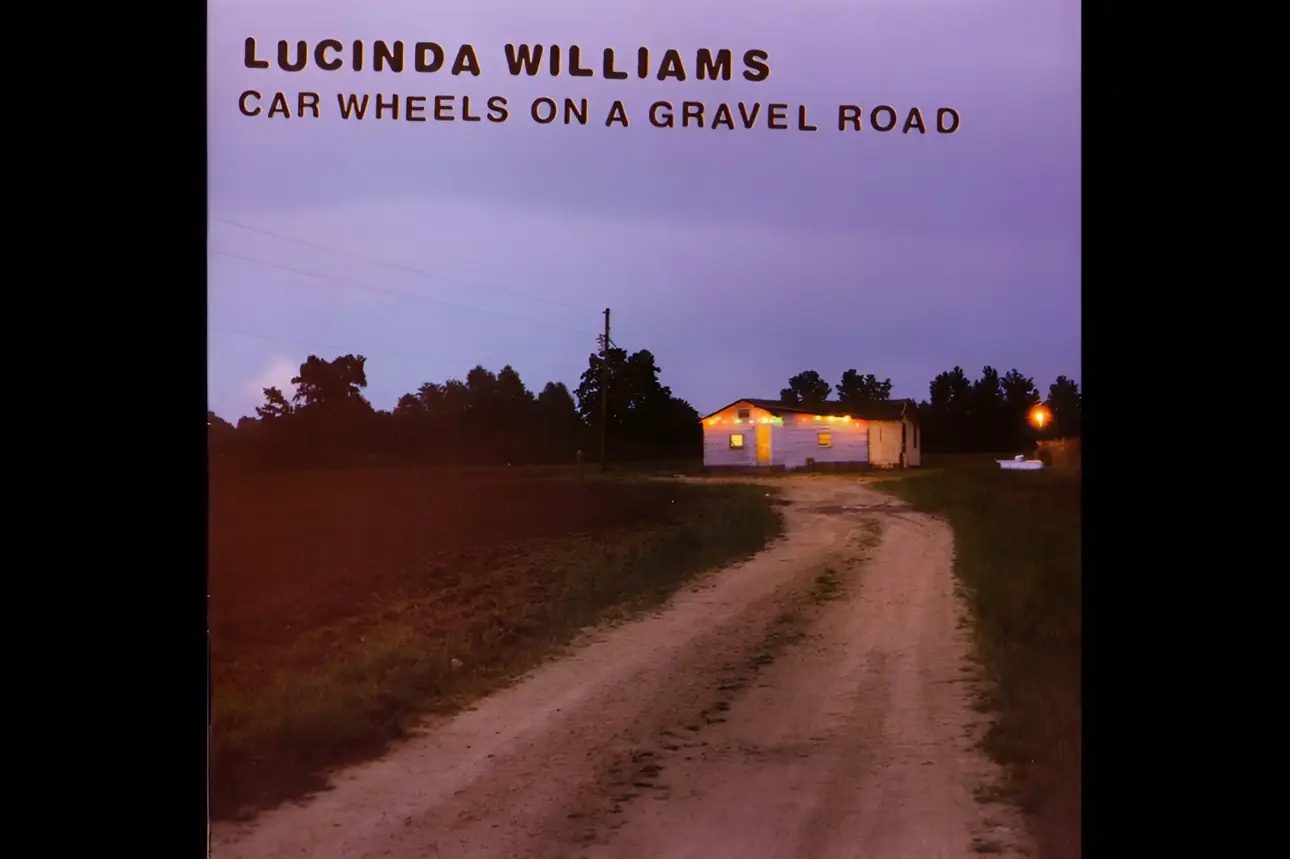
You know that frustration when you remember, finally, what your lover’s neck smelled like, how long you had to wait in the car for Dad that one time, how much it hurt when your first friend died, but you can’t describe it to anyone, not in a language that they would understand? Lucinda can, in high-res country-rock songs as simple and inevitable as the rain falling on your car roof. In a few years, you’ll have to replace the car. You’ll never find another Lucinda.
S. F.
18. OutKast, Aquemini (LaFace)
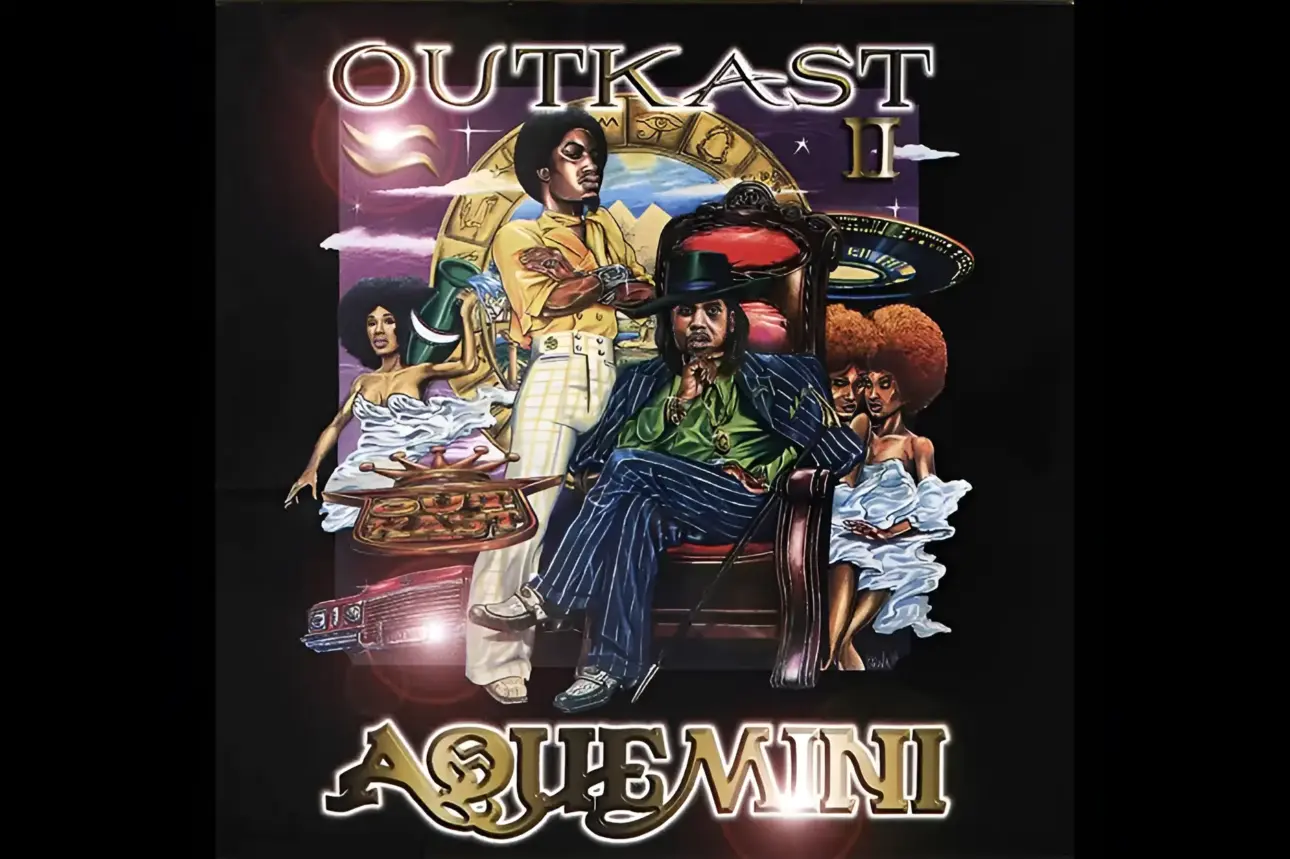
About three songs in, after the baleful “Return of the G” flips to the rousing “Rosa Parks,” you realize Aquemini is the best rap album in years, a late-decade Southern answer to The Low End Theory that’s as rich, raw, musical, and unpretentiously visionary as anything from Queens or points north. Atlantans André and Big Boi smack expertly ignant playa-isms up against art-school musings, live funk jams against sci-fi gizmos, and trunk-shaking 808 under everything — cronking it Southern style for the millennium.
Chris Norris
19. Elliott Smith, XO (DreamWorks)
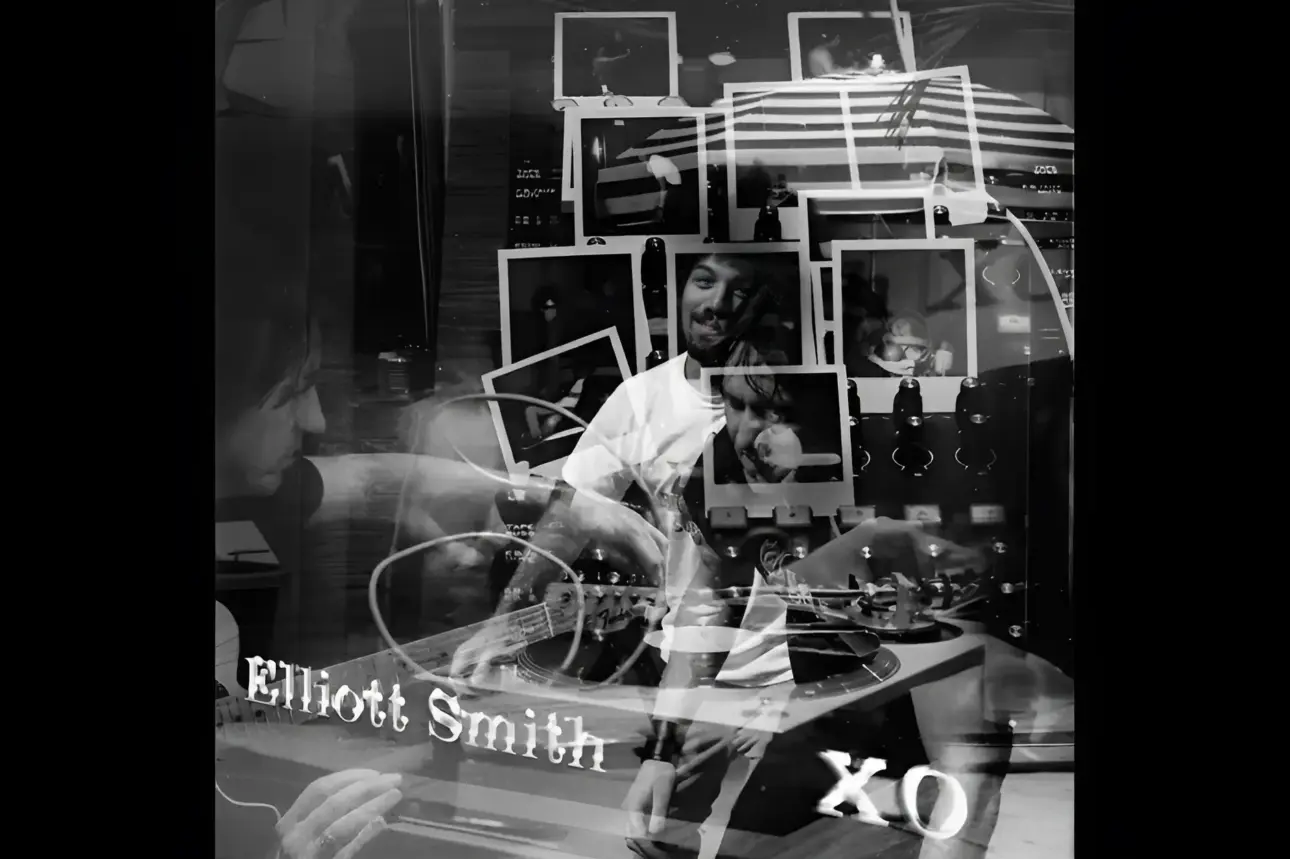
He’s the eternal wounded college boy, eyes dilating over jukeboxes, cigarette keeping his nubby fingers warm, head groggy with melodies — Beatles, Sebadoh, Nirvana. He screams, “What a fucking joke!” and his exclamation comes out like a semi-colon. XO may be Smith’s “pop statement” after years as an indie-rock water boy, but it’s so beguiling because he never feels obligated to get especially meaningful. The truth is in the moods, and his frail arrangements say enough to make your veins wince.
C. A.
20. Lauryn Hill, The Miseducation of Lauryn Hill (Ruffhouse/Columbia)
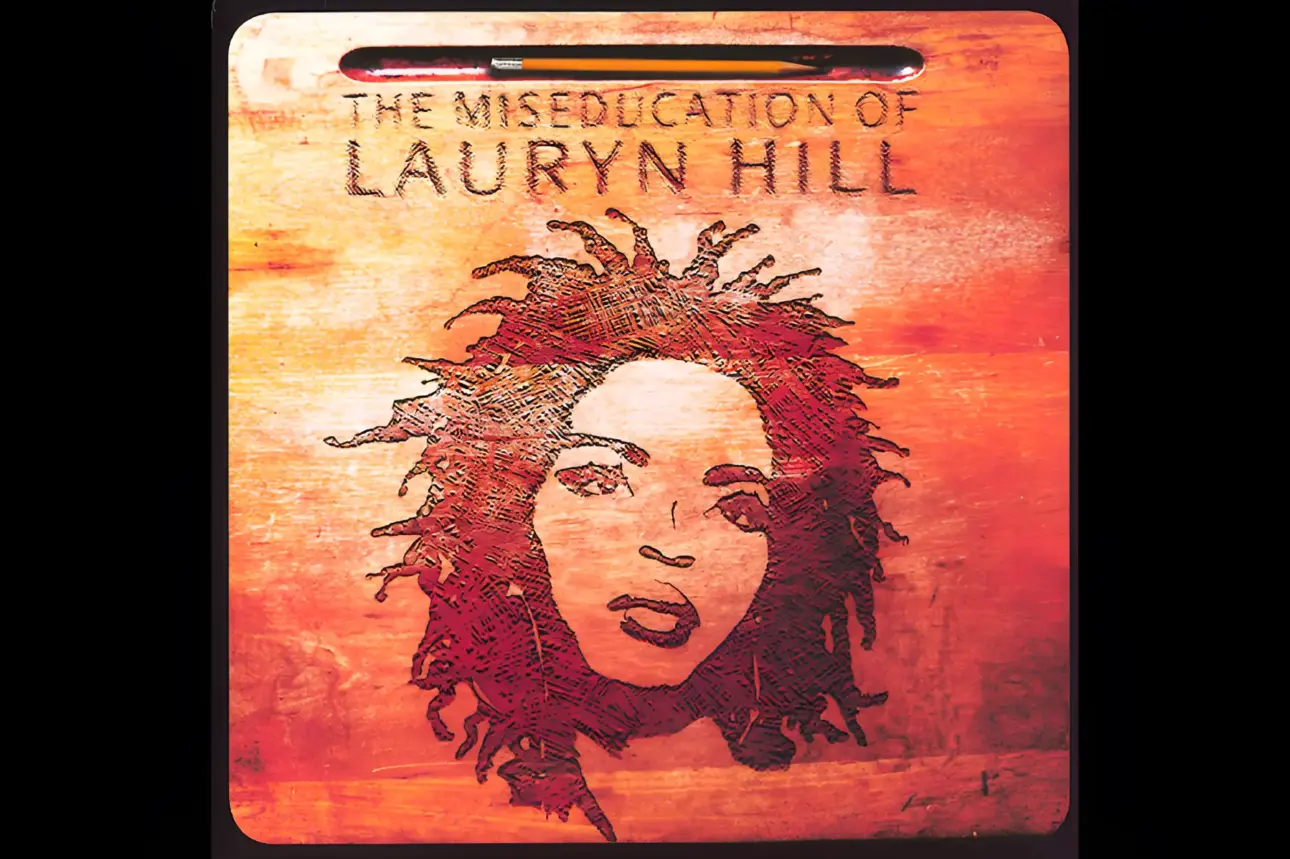
Call it There’s Something About Lauryn. Like a straight-A student and homecoming queen who saves the rain forest on weekends, L Boogie was the first woman ever to preside over hip-hop’s fiscal congregation. But on Miseducation, her pulpit sounds like an awfully lonely place. Betrayed by wannabe pimp daddies who consider spirituality a conspiracy theory and Jay-Z a model of integrity, the Fugee refugee wrote and produced her own world, unbounded by ghettos, suburbs, or broken hearts.
C. A.

